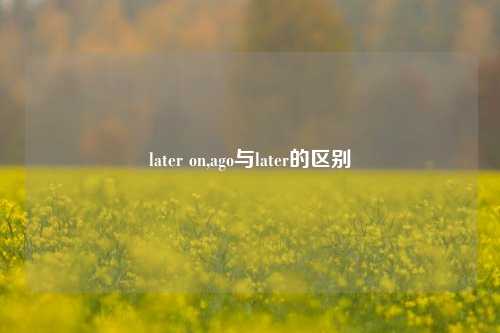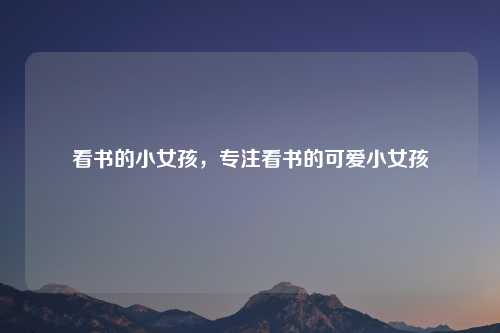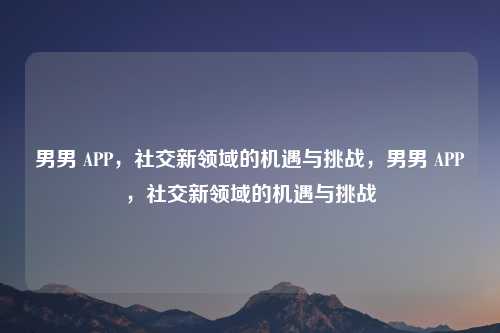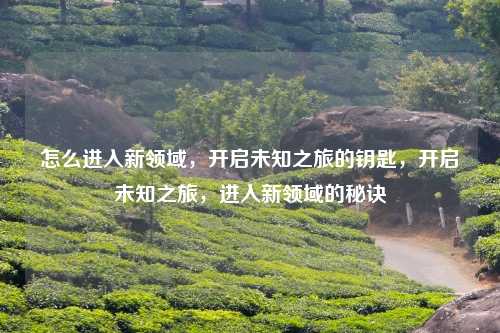later on,ago与later的区别
later on,ago与later的区别?
ago [ə'ɡəu]基本翻译adv. 以前,以往adj. 过去的;以前的网络释义ago:以前|Art Gallery Of Ontario|累加生成ago Leaf:凤尾蕉叶school ago:学龄later ['leitə]基本翻译adv. 随后;稍后;后来adj. 更迟的;更后的网络释义later:过一会,过后|以后|稍后later on:后来|过后|以后be later:毕癞头
life还是on?
in life在某人的生活/生命里

on life 中的on 与前面的动词构成固定短语的具体哪个词看情况
只能用that的情况:
<1>关系代词在定语从句中作表语,不管是人或物只能用that。
He is not the man that he was when I first saw him.
【他现在不是我第一次见他时那样的。】
<2>当先行词即指物又指人时,多用that引导定语从句。
Look at the girl and the dog that are crossing the street.
【瞧正在过马路的那个女孩和那只狗。】
<3>当先行词是有生命的动物或人时,宜使用that而不是which。
1.What's the name of the animals that jumps about?
【四处蹦跳的动物叫什么名字?】
2.Who is the girl that talked to you yesterday?
【昨天和你说话的女孩儿是谁?】
<4>当先行词被形容词的最高级修饰时引导定语从句的关系代词只能用that,而不能用which。
This is the most interesting book that I've ever read.
【这是我所读过的最有趣的书。】
<5>当先行词被all,something,anything,nothing,everything,little,much,the one,none等时,引导定语从句多用关系代词that。
1.The goverment has promised to do all that lies in its power to alleviate the hardships of people.
20 七年级上册英语阅读题40道?
Mr Chen living next door to us has a habit(习惯) of drinking. The best present to him, of course, is wine(酒). Now his eldest son brought him a bottle of Mao Tai. He was glad and drank it up, then wrote “105” on the corner of the trademark(商标)with a pencil, meaning he had already drunk 105 bottles of the famous wine. Two days later, a stranger came and offered(打算) to pay 5 yuan for the empty Mao Tai bottle. Mr Chen was pleased and sold it. Several days later, his second son brought him another bottle of Mao Tai. While he was examining and enjoying it, he suddenly found “105” ——the very mark(记号)on it.
6. The story is mainly about .
A. two sons of Chen’s B. the best wine
C. Mr Chen’s habit D. an empty bottle of Mao Tai
7. The story sells us that the stranger was a man who .
A. collected(收集)empty bottles B. produced famous wine
C. was a maker of wine D. was a cheat
8. Mr Chen sold his empty Mao Tai bottle because .
A. he had already drunk the Mao Tai up
B. he knew his second son would bring him another
C. the price offered was high enough
D. he hoped the bottle could be used again
9. When examining and enjoying the wine sent by his second son, Mr Chen found that .
A. the wine was mixed with water B. the wine was nice
C. the wine had exceeded(超过)the time limit(限制)
D. his second son had been cheated(欺骗)
10. According to the story, who should learn a lesson? .
A. The stranger B. Mr Chen and his second son
C. Mr Chen’s eldest son D. No one
6
D. an empty bottle of Mao Tai
都是说关于茅台酒瓶子
7.
B. produced famous wine
8.
B. he knew his second son would bring him another
9.我不确定
10.
A. The stranger
The Farmer, His Horse, and His son
Once there was an old farmer, with a horse which was almost as old as himself.
He set out one morning with his son to sell the horse before it died. Father
and son walked, because the farmer did not want the horse to be too tired.
They met two men on the road who said, "Why are you walking, farmer? You have
a horse, It's a long way to market(市场). "The farmer know that this was true,
so he rode on the horse, while his son walked.
Then they met two old women, "What are you doing up there, farmer? Can't you
see how tired boy is?" So the farmer got down, and his son rode instead.\$
Next, three old men stopped them, one said, "Why are you walking, farmer?
Get up, It's too hot for an old man like you to walk today," So the farmer got
up behind his son, and they rode on.
Some time later, a young woman passed them, "Why aren't you walking?" she
asked, "It isn't far to the market. Give your poor horse a rest."
So the farmer, and his son, got down once again. It is a fact that you cannot
please all the people all the time.
1. The farmer wanted to sell the horse ____.
A. before it was dead
B. before it become too tired
C. before it market was over
D. before it was as old as he was
#A
2. The two men on the road ____.
A. asked how far it was to the market
B. said they thought the horse looked very tired
C. asked why the farmer was not riding on his horse
D. told the farmer's son to get off the horse and walk
#C
3. The two old women said it was wrong for ____.
A. the farmer to ride such a tired horse
B. the farmer to ride while his young son walked
C. the boy to ride instead of his father
D. only one person to ride such a long way
#D
4. The farmer got up behind his son because ____.
A. the old man said it was too hot for him to walk
B. the three old men stopped them on the road
C. he did not know why he was walking
D. his son could not ride the horse by himself
#A
回答者: 北欧神话~ - 见习魔法师 三级 2009-1-16 19:37
检举Yuanxiao
吃元宵,话元宵
The 15th day of the 1st lunar month is the Chinese Lantern Festival. The first lunar month is called Yuan-month in China, and in the ancient times people called night Xiao. Meanwhile, the 15th day is the first night to see a full moon. So the day is also called Yuanxiao Festival in China. According to the Chinese tradition, at the very beginning of a new year, when there is a bright full moon hanging in the sky, there should be thousands of colorful lanterns hung out for people to appreciate. At this time, people will try to solve the puzzles on the lanterns and get all their families united in the joyful atmosphere.
Besides entertainment and beautiful lanterns, another important part of the Lantern Festival, is eating small dumpling (面团) balls made of glutinous rice flour (糯米粉) . We call these balls Yuanxiao of Tangyuan. Obviously, they get the name from the festival itself. It is said that the custom of eating Yuanxiao originated during the Eastern Jin Dynasty in the fourth century, then became popular during the Tang and Song periods.
The fillings inside the dumplings or Yuanxiao are either sweet or salty. Sweet fillings are made of sugar, walnuts (胡桃), sesame (芝麻), osmanthus flowers (桂花), rose petals, sweetened tangerine peel (甜橙皮), bean paste (豆沙), or jujube paste (枣泥) . A single ingredient (成分) or any combination can be used as the filling. The salty variety is filled with minced (切碎的) meat, vegetables or a mixture.
The way to make Yuanxiao also varies between northern and southern China. The usual method followed in southern provinces is to shape the dough (生面团) of rice flour into balls, make a hole, insert the filling, then close the hole and smooth out the dumpling by rolling it between your hands. In North China, sweet or non-meat stuffing is the usual ingredient. The fillings are pressed into hardened cores, dipped lightly in water and rolled in a flat basket containing dry glutinous rice flour. A layer (层) of the flour sticks to the filling, which is then again dipped in water and rolled a second time in the rice flour. And so it goes, like rolling a snowball, until the dumpling is the desired size.
The custom of eating Yuanxiao dumplings remains. This tradition encourages both old and new stores to promote their Yuanxiao products. They all try their best to improve the taste and quality of the dumplings to attract more customers
回答者: 我发二代 - 试用期 一级 2009-1-17 15:32
检举七年级上学期内容的哦:
I am a girl.My English name is Linda.I am eleven years old.I have eight subjects at school.They are Chinese,math,English,P.E.,music,art,science and history.
My favorite subject is Chinese.I think it is interesting.I also like English.But it's a little difficult for me.I can speak only a little English.History is interesting ,too.I like it.Math is difficult.Mr Wang is our math teacher.He is very strict.I'm usually tired after his class.But I work hard.I think I can study it well.
⒈Linda is ______.(A)
A.11 B.12 C.13
⒉Linda has ______subjects at school.(C)
A.six B.seven C.eight
⒊Linda's favorite subject is ______.(A)
A.Chinese B.English C.math
⒋Linda thinks English is ______.(C)
A.difficult B.interesting C.a little difficult
⒌______ is NOT true.(B)
A.Linda can speak a little English.
B.Mr Wang is Linda's history teacher.
C.Linda thinks she can study math well.
later后面接哪个介词加逗号?
later on晚点,后面加逗号
comeon有几个意思?
意思有
⒈ 快点,振作起来...come on! 快点,振作起来!
⒉进展,改进,改善,发展,完善How are things coming on?情况怎么样?The project is coming on fine.这项工程进展顺利。
⒊(用于命令)快,加油,加把劲Come on! We don't have much time.快点!我们时间不多了。
⒋(表示知道某人所说的话不正确)得了吧,拜托 Oh,come on——you know that isn't true!(一般用升调读出 come on)咳,得了吧,你知道那不是真的!
⒌(疾病或某种心情)开始(通常用于进行时)I can feel a cold coming on.我觉得要感冒了。
⒍(电视节目等)开始What time does the news come on?新闻报道什么时候开始?Night is coming on.夜幕徐徐降临。
⒎开始运转或运行Set the oven to come on at six.把烤箱设定在六点钟开始烘烤。
⒏偶然遇见;偶然发现 come on sb./sth.
⒐【非正式】勾引,勾搭(想与其发生性关系)come on to sb.
⒑ 开始讨论(某一主题)come on to sth.I'd like to come onthat question later.我想以后再讨论那个问题。
11、跟着来You'd better go now,and I'll come on later.你最好现在就去,我随后就来。
⒓上演This play is coming on again next month.这出戏下月又要上演了。
⒔【俚】宣传花招(中间带有连字符)The sale was just a come-on to get customers into the store.大拍卖只是一种吸引顾客的花招。
⒕【口】引诱,诱惑,劝诱(中间带有连字符)She was definitely giving him the come-on.她肯定是在勾引他。





